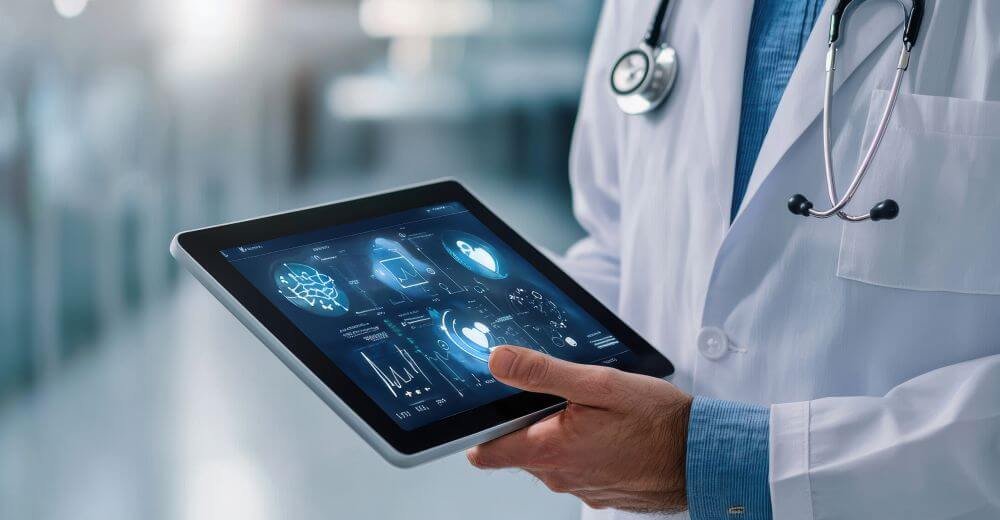Big data is transforming industries across the board, and the health care industry is one of the biggest sectors to be transformed. Big data is basically huge amounts of information that can be gathered, stored, and processed. In medical science, big data gives physicians’, nurses’, and scientists’ insights on disease, patients, and treatments. Big data is quickly becoming one of the strongest tools in our arsenal to enhance healthcare quicker, better, and more personalized.
Understanding Big Data in Healthcare
Hospitals and clinics collect numerous types of information every day. These may be patient reports, test results, images like X-rays, medication history, and even counts of heart rate or blood pressure. All these amount to millions of data. Big data software help to handle and analyze this data in ways beyond human capabilities.
Rather than examining a single patient’s questionnaire, big data looks across thousands of records to spot trends. These trends allow doctors to identify the best treatment plans or recognize warning signs before health conditions become critical.
Improving Patient Care
One of the biggest uses of big data in medicine is to improve the treatment of patients. Physicians can make improved decisions with computerized information. They can analyze past cases and see what worked best for people suffering from similar conditions.
Additionally, big data allows doctors to track the progress of the patient over a period of time. If the patient is wearing a smart device like a smartwatch, it can send health records to the doctor. This makes doctors not need to wait for a check-up to decide if a problem is present. They can act and possibly stop an issue from getting out of control.
Predicting Diseases Before They Happen
Big data also helps in avoiding diseases even before they set in. By monitoring huge amounts of data from populations, scientists can find pre-disease symptoms. It is called predictive analytics.
If many people with similar weight, age, and family history get diabetes, big data tools can notice this. Doctors can then warn those at risk and suggest healthy lifestyle changes.
Faster and Smarter Research
Previous medical research would have taken decades. But now, with big data, research is much faster. Physicians can use computer programs to sift through huge repositories of patient records, test results, and other information looking for new ideas or to test hypotheses. This can lead to finding new drugs or treatments more quickly.
Big data also facilitates the hiring of the right people for clinical trials. Getting volunteers was previously challenging and time-consuming. Currently, computers can look through patient records for the right individuals who would fit the requirements of the trial. It conserves time and allows for faster new treatments to reach the market.
Saving Money and Reducing Waste
Healthcare is expensive. But big data can make it less expensive. By detecting problems before they happen and avoiding unnecessary procedures, it saves the hospital and the patient money.
Big data also conserves wastage. For example, it can track how many times equipment is being utilized or if medicine is being over-ordered. This will allow hospitals to utilize their resources more efficiently and not waste money on something they do not need.
Problems to be Solved
Challenges also exist for big data. The biggest challenge is privacy. Patient information should be kept secure. Hospitals and technology companies must make certain that information is protected and not tampered with.
The second challenge is to make sure the data is correct and useful. If the data is wrong or random, it can lead to bad decisions. That’s why good systems and constant data checks are required.
Conclusion
Big data is writing the book on the future of healthcare. From enabling doctors to deliver improved healthcare to speeding up research and reducing healthcare cost, big data has numerous solutions. As the world produces larger amounts of healthcare data every single day, platforms that understand and use it sensibly will be the foundation of healthcare in the future. The challenge will be to use this authority wisely with patients’ interests and safety on the mind.





